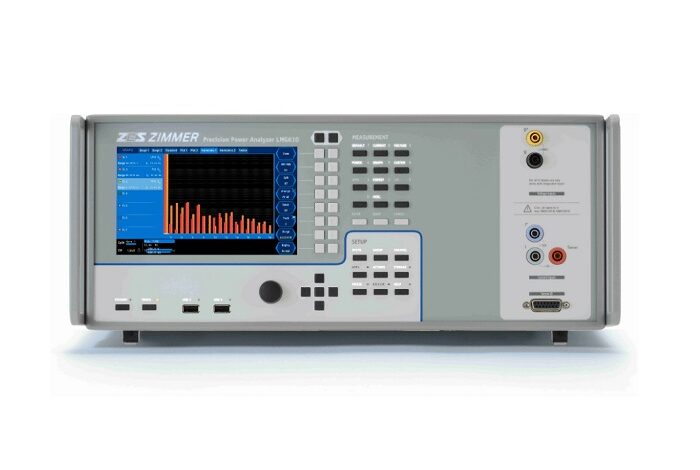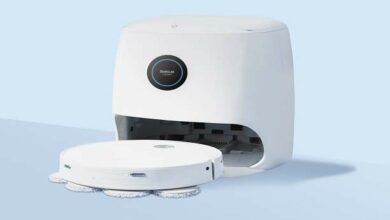Maximizing Efficiency: How Power Quality Analysers Improve Electrical Performance

In the ever-evolving landscape of energy management, power quality analysers have become indispensable tools for conducting comprehensive energy audits. These sophisticated devices not only help in identifying inefficiencies in power usage but also ensure the reliability and longevity of electrical equipment. For businesses and facilities across Australia, understanding and utilising power quality analysers can lead to significant cost savings and operational excellence.
Understanding Power Quality
Before diving into the use of power quality analysers, it’s crucial to understand what power quality means. Power quality refers to the characteristics of the electrical power supplied to and consumed by buildings, industrial plants, and other facilities. It encompasses various aspects such as voltage stability, frequency stability, and the absence of disturbances like harmonics and transients.
Poor power quality can lead to numerous problems, including equipment malfunction, reduced lifespan of electrical components, and increased energy costs. In Australia, where energy efficiency and sustainability are becoming increasingly important, maintaining high power quality is essential.
The Role of Power Quality Analysers
Power quality analysers are sophisticated instruments that measure and record various parameters of electricity as it flows through a system. They are used to detect issues that can affect power quality, such as voltage dips, swells, harmonics, and imbalances. By identifying these issues, businesses can take corrective actions to improve their power systems’ efficiency and reliability.
Key Features to Look For
When selecting a power quality analyser for energy audits, consider the following features:
- Accuracy: High precision in measurements is vital for identifying even the smallest issues that could lead to energy waste.
- Data Logging: The ability to record data over time helps in understanding intermittent problems and their patterns.
- Ease of Use: A user-friendly interface ensures that the analyser can be effectively used by technicians without extensive training.
- Compliance with Standards: Ensure the analyser meets Australian and international standards for power quality measurement.
Conducting an Energy Audit with a Power Quality Analyser
An energy audit is a systematic process of understanding how energy is used within a facility and identifying opportunities for improvement. Here’s how to conduct an energy audit using a power quality analyser:
- Preliminary Analysis: Begin by gathering historical energy consumption data to establish a baseline.
- Site Inspection: Inspect the facility to identify potential areas where power quality issues may exist.
- Data Collection: Use the power quality analyser to collect data on the electrical system’s performance.
- Analysis: Analyse the collected data to identify patterns and issues affecting power quality and energy efficiency.
- Recommendations: Develop a set of recommendations based on the analysis to improve power quality and reduce energy consumption.
Benefits of Regular Energy Audits
Regular energy audits using power quality analysers can provide several benefits:
- Cost Savings: Identifying and rectifying power quality issues can lead to significant reductions in energy bills.
- Equipment Protection: Improved power quality can extend the life of electrical equipment, reducing maintenance and replacement costs.
- Sustainability: By reducing energy waste, businesses contribute to environmental sustainability efforts.
Maximising Energy Efficiency with Power Quality Analysers
Continuing from where we left off, let’s delve deeper into how power quality analysers can be leveraged to maximise energy efficiency in Australian businesses.
Identifying Energy Drains
One of the primary uses of power quality analysers is to identify areas where energy is being wasted. This could be due to equipment that’s not operating optimally or due to power supply issues. By pinpointing these energy drains, businesses can take targeted actions to reduce unnecessary consumption.
Harmonics Analysis
Harmonics are a common power quality issue that can cause significant energy losses and damage to sensitive equipment. Power quality analysers can measure harmonic distortion levels and help in designing solutions to mitigate their impact, such as installing harmonic filters or redesigning the electrical network.
Load Monitoring
Monitoring the load on different circuits can reveal opportunities for load balancing, which can improve the efficiency of the power supply and reduce peak demand charges. Power quality analysers can track load profiles over time, aiding in the planning of equipment usage and maintenance schedules.
Voltage Optimisation
Voltage optimisation is another area where power quality analysers prove useful. By ensuring that voltage levels are kept within optimal ranges, businesses can reduce energy consumption and extend the life of their electrical devices.
Predictive Maintenance
Regular monitoring with power quality analysers can also lead to a more predictive approach to maintenance. By identifying potential issues before they lead to failures, businesses can avoid downtime and the associated costs.
Training and Awareness
It’s not just about having the right tools; it’s also about knowing how to use them effectively. Training staff on the importance of power quality and the use of analysers is crucial. Awareness programs can help in embedding energy efficiency into the company culture.
Regulatory Compliance
In Australia, there are regulations and standards governing energy efficiency and power quality. Using power quality analysers helps businesses stay compliant and avoid penalties. It also positions them as responsible corporate citizens, committed to sustainability.
Choosing the Right Analyser
With a variety of power quality analysers available in the market, it’s important to choose one that suits your specific needs. Factors to consider include the types of loads you have, the complexity of your electrical system, and the specific power quality issues you face.
Conclusion
For Australian businesses looking to optimise their energy usage, power quality analysers are a critical tool. They not only help in conducting thorough energy audits but also play a key role in maintaining the health of electrical systems. By investing in quality analysers and regular audits, businesses can achieve greater energy efficiency, cost savings, and a smaller carbon footprint.




